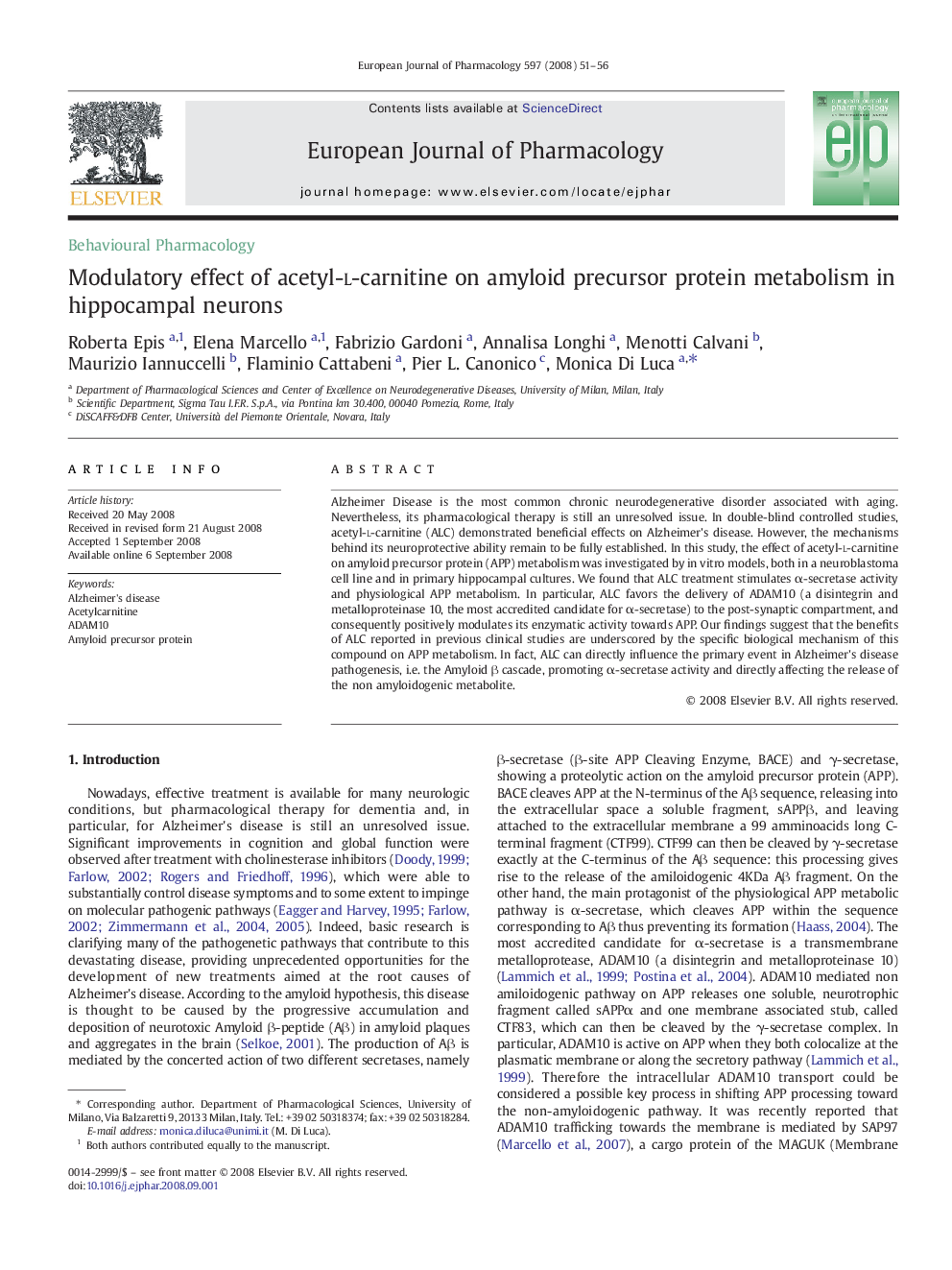| Article ID | Journal | Published Year | Pages | File Type |
|---|---|---|---|---|
| 2534779 | European Journal of Pharmacology | 2008 | 6 Pages |
Alzheimer Disease is the most common chronic neurodegenerative disorder associated with aging. Nevertheless, its pharmacological therapy is still an unresolved issue. In double-blind controlled studies, acetyl-l-carnitine (ALC) demonstrated beneficial effects on Alzheimer's disease. However, the mechanisms behind its neuroprotective ability remain to be fully established. In this study, the effect of acetyl-l-carnitine on amyloid precursor protein (APP) metabolism was investigated by in vitro models, both in a neuroblastoma cell line and in primary hippocampal cultures. We found that ALC treatment stimulates α-secretase activity and physiological APP metabolism. In particular, ALC favors the delivery of ADAM10 (a disintegrin and metalloproteinase 10, the most accredited candidate for α-secretase) to the post-synaptic compartment, and consequently positively modulates its enzymatic activity towards APP. Our findings suggest that the benefits of ALC reported in previous clinical studies are underscored by the specific biological mechanism of this compound on APP metabolism. In fact, ALC can directly influence the primary event in Alzheimer's disease pathogenesis, i.e. the Amyloid β cascade, promoting α-secretase activity and directly affecting the release of the non amyloidogenic metabolite.
